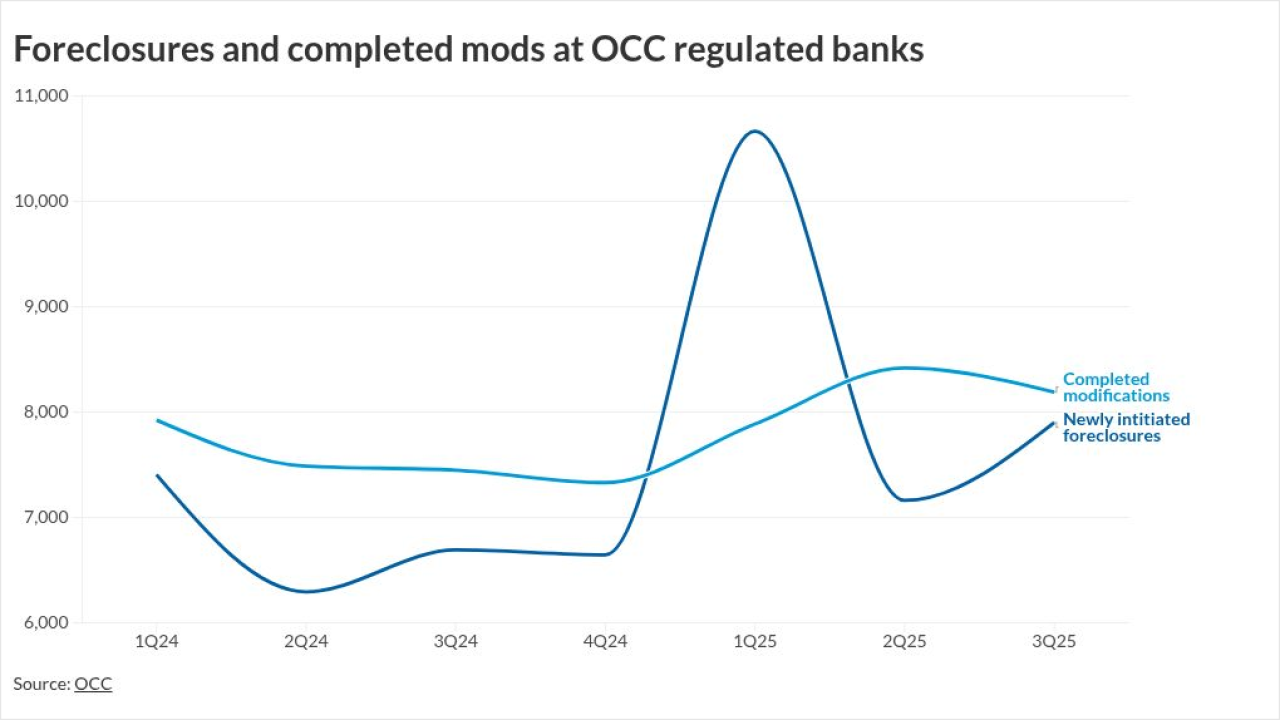The acquisition of
Now that CS is in the arms of UBS and the Swiss government, some of the members of CS banking team have moved to a new firm set up by Apollo Management, Atlas SPG. The sale of the structured products group of CS to Apollo is incomplete, however, because the buyer reportedly was not willing to take on a $20 billion Ginnie Mae loan book comprised of advances to several IMBs.
CS also seems to have retained Select Portfolio Servicing, the largest non-agency servicer in the U.S. A little background helps. In Q3 2022, SPS had entered into a definitive purchase agreement
In February 2023, CS conducted an auction process to sell SPS, which has 40% market share in non-agency servicing. Several participants tell NMN that roughly half a dozen Ginnie Mae seller/servicers made it to the final round of the auction, but no result was announced. The deterioration in the credit performance of government-insured loans seemingly made the CS Ginnie Mae book near impossible to sell. Neither SPS nor CS responded to requests for comment.

Because of rising interest rates, the government loan market is under intense pressure, both in terms of the perception and some tough realities. With SOFR at 4.55%, financing for warehouse lines is over 6% annually — higher for smaller issuers.
The collapse of
The lenders to RMF included Leadenhall Capital Partners, CS, Nomura Securities, Barclays Bank and Texas Capital Bank. Leadenhall reportedly was wiped-out entirely when
Several bankers tell NMN that they expect Ginnie Mae may need to take over another HECM portfolio before the end of this year. Yet while some observers thought that bank lenders might step back from the MSR market after the RMF default, in fact the opposite is reportedly the case. TCBI and several other lenders to RMF have reportedly increased available financing for both forward and reverse MSRs, a sign several large Ginnie Mae issuers point to as a positive sign for the market.
The migration of new financing for large Ginnie Mae issuers, from CS to Atlas SPG and other lenders, is a crucially important development for the mortgage market and specifically for IMBs operating in the government loan sector. PennyMac Financial Services dropped
"On March 16, 2023, PennyMac Financial Services, Inc. (the "Company"), through its direct, wholly-owned subsidiary, Private National Mortgage Acceptance Company, LLC ("PNMAC") and two of its indirect, wholly-owned subsidiaries, PNMAC GMSR ISSUER TRUST ("Issuer Trust") and PennyMac Loan Services, LLC ("PLS"), consented to assignments of all of the credit facilities provided to the Company by Credit Suisse First Boston Mortgage Capital LLC, as administrative agent ("CSFB") and Credit Suisse AG, Cayman Islands Branch, as a buyer or purchaser ("CSCIB"), and Alpine Securitization LTD, as a buyer or purchaser ("Alpine"). All of the credit facilities are assigned to Atlas Securitized Products, L.P. ("Atlas SP"), Atlas Securitized Products Investments 3, L.P., Atlas Securitized Products Funding 2, L.P., and Nexera Holding LLC (each an "Assignee Buyer")."
The good news is that despite the turmoil caused by the failure of RMF, Ginnie Mae MSRs were being financed in the first quarter — at least until the
Several large lenders in the MSR space have expressed optimism about the financing market in comments to NMN. One of the leading warehouse lenders tells NMN that "despite the market turmoil, our pipeline for MSR financing is robust and new facilities across different asset types are being executed for well-qualified clients."
More, there have reportedly been several completed MSR financings involving other large Ginnie Mae issuers in the first quarter, including PennyMac Financial, Freedom Mortgage and Mr. Cooper. These new MSR deals are reportedly being arranged by the former CS banking team now at Atlas SPG.
The latest MSR transactions include a variety of banks in syndications of "promissory notes" rather than the bonds used in previous deals led by CS. It seems that the securities market execution for MSR financing going back to 2017 now must be replicated with a bank loan. Atlas SPG declined to comment for this article.
Only time will tell what happens with the process of refinancing MSR bonds as they come due. Falling loan volumes are going to make commercial banks hungry for quality C&I assets once the dust settles from the failure of several regional depositories. If interest rates now fall as a result of efforts by the Fed to stem the deposit run on smaller banks, this will assist lending in terms of higher productions volumes.
All that said, the heavily skewed distribution of loan coupons in the market due to quantitative easing means that lenders will not see significant refinance volumes until mortgage rates are in the 5% range or lower. Some 75% of all MBS fall between 2% and 4.5% coupons, one reason why U.S. banks have been under attack in recent weeks as unrealized losses on MBS and loans have swelled, creating ugly public disclosure.
IMB don't have such high-class problems as unrealized losses on large securities portfolios, but they need new lending volumes to truly prosper in the months ahead. As the Swiss government is forcing Credit Suisse bondholders to take total losses, IMBs should be pleased that firms like Atlas, TCBI and a number of larger bank lenders appear to be committed to the MSR sector despite the turmoil caused by the Fed's aggressive interest rate hikes.




